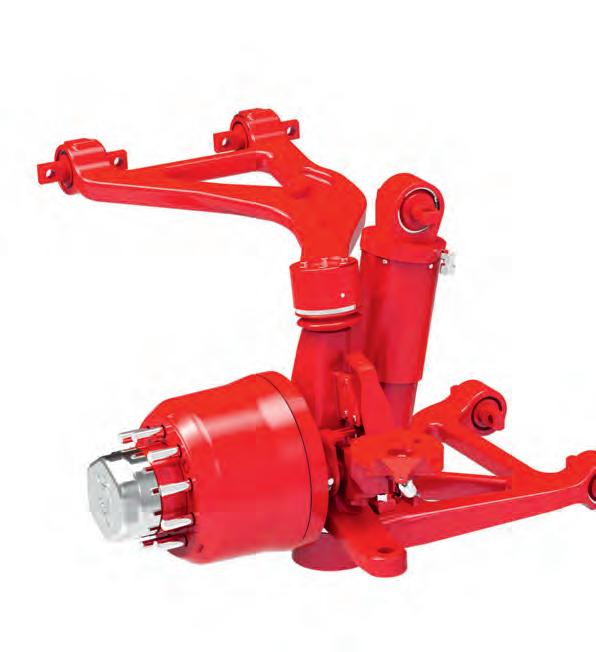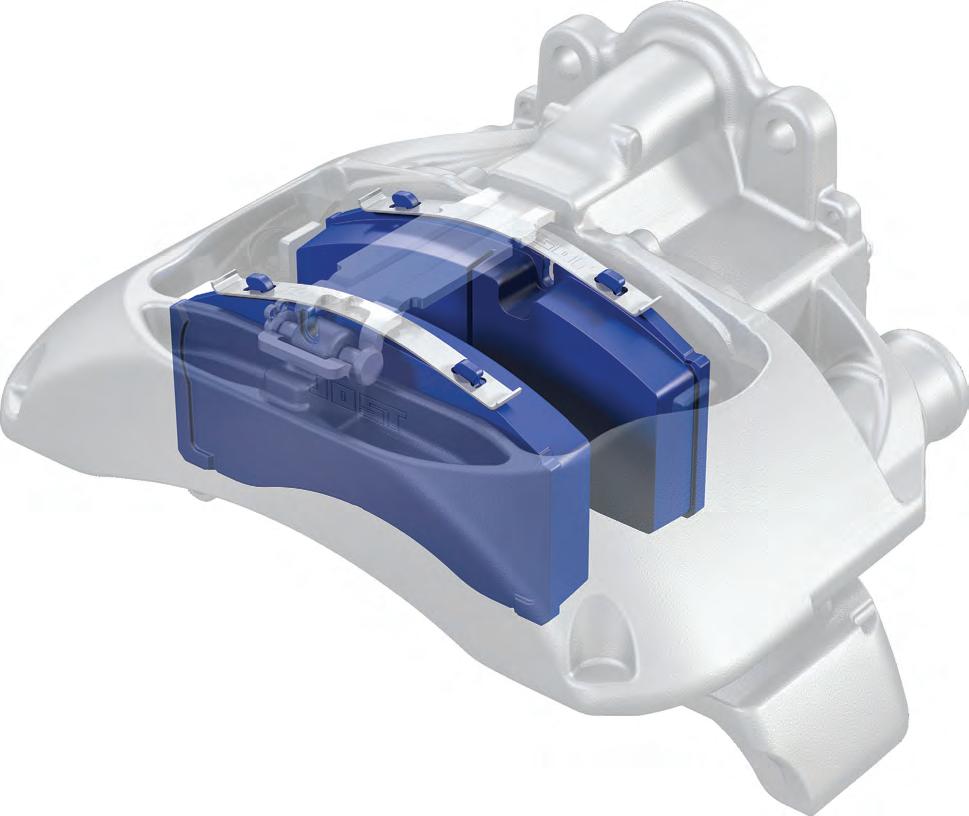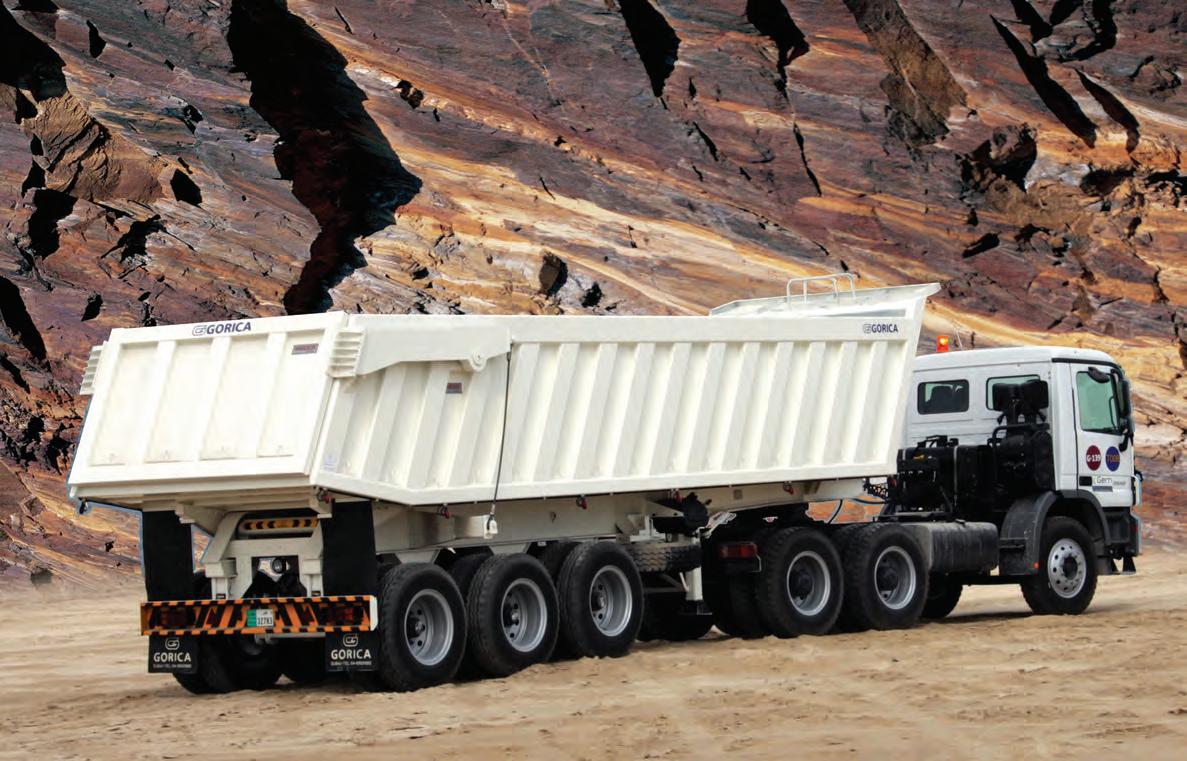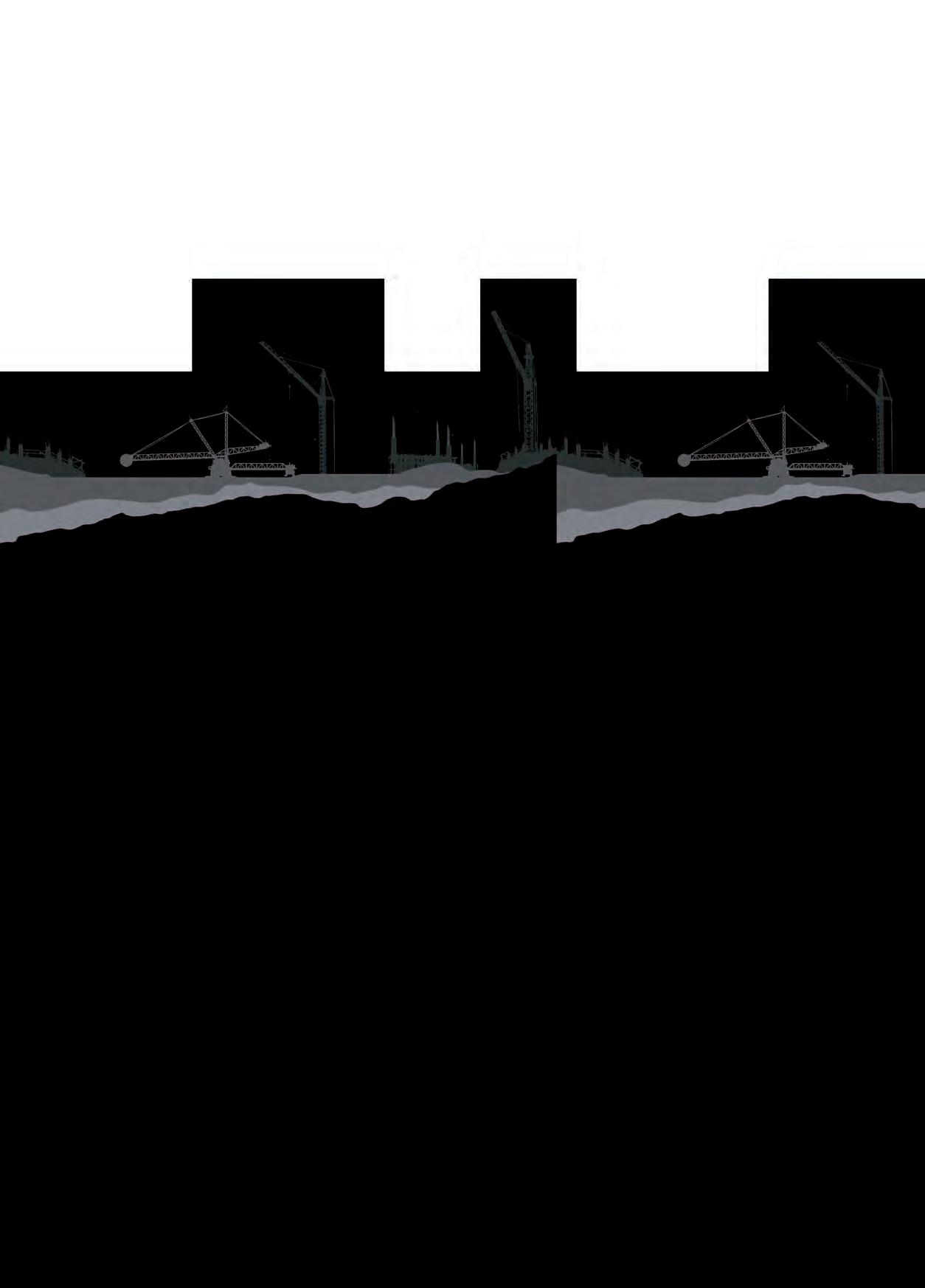
6 minute read
MARKET REPORT
trailer axles
Challenging themes are our motivation: WE DEVELOP INNOVATIONS!

DREAM T H E N AT I O N A L D E V E LO P M E N T
The Republic of South Africa held a cabinet meeting in August at the Union Buildings in Pretoria. The Government outlined its National Economic Development and Labour Council (NEDLAC) commitments.
As part of the country’s democratic transition 25 years ago, NEDLAC was founded to alleviate social development and economic growth issues. The nation is characterised by severe inequality in incomes, skills, economic power and ownership, which has exacerbated society issues over time. It is the aim of NEDLAC to improve South Africa’s policies on public finance, labour market, trade and industry and development. DESPITE DECADES OF POLITICAL AND INVESTMENT VOLATILITY, SOUTH AFRICA HAS THE POTENTIAL TO EMERGE AS A DYNAMIC AND DIVERSE PLAYER IN THE GLOBAL ECONOMY.

T H E N AT I O N A L D E V E LO P M E N T
Specifically, NEDLAC has identified three defining challenges: sustainable economic growth, to facilitate wealth creation as a means of financing social programs and attracting investment; greater social equity, both at the workplace and in communities, to ensure that large-scale inequalities are adequately addressed and that society provides at least for all the basic needs of its people; and increased participation, by all major stakeholders in economic decision-making at all levels to foster cooperation in the production of wealth and its equitable distribution.
Virgil Seafield, Overall Convenor – Government, reported in the NEDLAC annual report 2016-17 that the organisation has been faced with a broader challenge in developing cooperative approaches to addressing socio-economic challenges “in the context of a discourse that is highly polarised and ideological”.
He explained even though effective national tripartite engagement has been weakened by an increase in community-based conflict, inter union rivalry and intra union divisions along with challenges within the business constituency, NEDLAC at the time emerged as a champion of social dialogue in the policy formulation arena.
“Over the last year the organisation facilitated ground breaking agreements on the labour relations front,” he said. “Central to the agreement on a National Minimum Wage is not the level of the agreed wage but an honest and sincere attempt by all social partners to engage on the issue of growing inequality and

Headquartered in Rosslyn, Pretoria, Afrit manufactures a diverse selection of trailers including its latest product is the T6 Sliding Curtain.
addressing, in a constructive manner, the levels of poverty in our country. The agreements reached on labour stability for government are not only about the detail but how this would contribute towards creating an investor friendly economic environment.”
Overall Convenor – Labour, Bheki Ntshalintshali, however, was more critical of South Africa’s economic status in 2017 calling it a “junk state” as a result of slow post–Global Financial Crisis recovery and falling into a recession that year.
Despite the unemployment crisis, reaching 37 per cent, equating to 9.3 million unemployed people, Ntshalintshali was adamant that NEDLAC stood up again under the leadership of then Deputy President Ramaphosa to tackle wage inequality and that positive indicators boosted confidence for NEDLAC’s cause.
Currently, high levels of unemployment and low economic growth is a concern for the Cabinet. Quarterly Labour Force Survey results for Q2 2019 released by Statistics South Africa show that the official unemployment rate increased 1.4 percentage points to 29 per cent compared with Q1 2019.
The Cabinet also remains committed to addressing structural challenges that continue to affect the performance of South Africa’s economy and its ability to respond to developmental challenges.
A rapid response agreement signed by all NEDLAC parties commits to meet the stakeholders on a monthly basis to track the 77 Job Summit commitments to be chaired by President, Cyril Ramaphosa, as of September 2019.
The Government said in a statement that the commitments by all stakeholders – which include government, labour, business, civilsociety organisations – target programs to create jobs, mechanisms to unblock barriers to effect implementation, as well as agreements on job retention and ways to prevent job
losses. Also included in the commitments are specific sector targeting initiatives to grow the economy.
South Africa’s Cabinet also reported its participation in the 18th African Growth and Opportunity Act (AGOA) Forum which was held in Côte d’Ivoire. AGOA is reported to be a unilateral US trade preference program that provides duty-free quota-free treatment for over 6,400 tariff lines from 40 AGOA-eligible sub-Saharan African countries, including South Africa, into the US market.
“South Africa’s constructive and positive discussions with the US Trade Representative provides potential access to the US market and American investment in our economy, which are important ways of addressing job creation and the elimination of poverty,” the Cabinet said.
Following a visit to South Africa in June, the International Monetary Fund (IMF) was optimistic that South Africa’s subdued economic growth could be reignited if the pace of structural reform implementation is accelerated. It reported that robust actions are needed to reduce fiscal deficit and reverse the increase in public debt. The IMF claim that the South African Government also has a renewed opportunity to press ahead with policies to further strengthen governance, encourage competition, increase labour market flexibility and reduce the cost of doing business.
“A focus on policy actions to remove long-standing structural constraints to growth and accelerate job creation is a must,” the IMF said in a statement. “Acting decisively on tackling structural impediments to growth would help complement the authorities’ efforts to conduct sound macroeconomic policies, thus restoring policy certainty and boosting investor confidence. An improved business environment resulting from reform implementation would attract much-needed private investment, and, in turn, lead to a virtuous cycle of growth, job creation, and social inclusion.”
Minerals Council South Africa confirms that the country’s Bushveld Complex, found in the northern provinces, hosts approximately 80 per cent of platinum group metals–bearing ore – more than half of the world’s platinum, chromium, vanadium and refractory minerals.
The mining industry directly contributes more than 300 billion ZAR (€17.5 billion) to South Africa’s Gross Domestic Product (GDP), and is said to be the economic anchor of many communities around the country, employing more than 450,000 people, according to a report published by management consulting company, McKinsey & Company.
Putting the shine back into South African mining: A path to competitiveness and growth, released February 2019, highlights that global trends, including the transition to clean energy and a shift to China’s economic focus away from infrastructure developments to new technologies, could dampen demand for South African commodities in the years ahead. In the medium and long term, however, opportunities to rekindle growth and job-creation including localising the value chain from mining operations, expanding downstream processing for key commodities and unlocking the potential of the country’s rich ore bodies could accelerate growth in South Africa’s broader economy.
To restore competitiveness and growth in South African mining, McKinsey & Company recommend: unleashing a productivity revolution through the smart use of new technology and improving employee motivation, the work environment and other organisational health elements; redefine the socioeconomic role of mines as catalysts of broader development in the communities in which they operate; embrace disruption in global energy markets to realise new sources of potential mining growth; and

GRW, based in Worcester, develops and produces state-of-the-art road transport equipment including this tipping silo tanker.
ensure conditions are in place to unlock South Africa’s high-potential mining assets, including its rich, untapped reserves of iron ore and manganese, and niche opportunities in other minerals such as vanadium and industrial metals.
Key to driving positive change in the country, especially for mining operators, is quality road transport investment. Equipment specialist, SAF-Holland, has a relatively small footprint in the South African market with a distribution facility and sales office based in Johannesburg and










